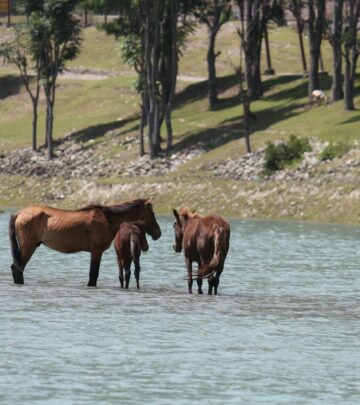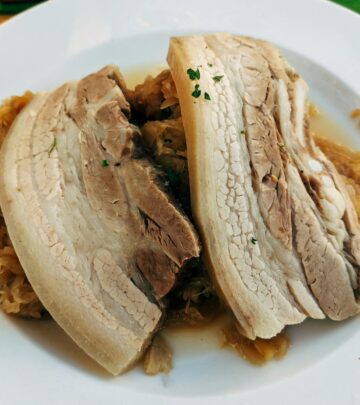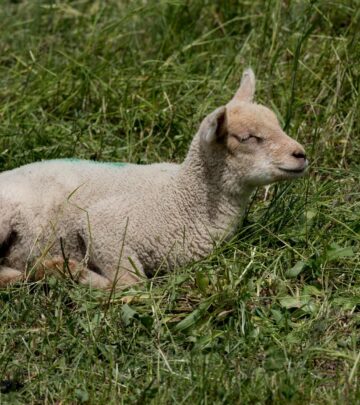Why Do Dogs Eat Dirt? 5 Reasons And How To Stop It
Identifying key triggers reveals crucial insights to safeguard your pet’s wellbeing.
Why Do Dogs Eat Dirt?
Many dog owners have witnessed their canine companions eagerly sniffing, licking, or even consuming dirt, mud, or soil. This puzzling habit raises concerns regarding potential health risks and what it may indicate about a dog’s well-being. While dirt eating, also known as geophagia, is relatively common, it’s essential to understand the underlying causes, associated dangers, and practical solutions to help keep your dog healthy.
What Is Geophagia?
Geophagia is a form of the eating disorder known as pica, which describes the consumption of non-food items. In dogs, this typically manifests as eating dirt, mud, or soil and can be driven by a variety of factors, both behavioral and medical .
Main Reasons Dogs Eat Dirt
The compulsion to eat dirt often stems from several sources:
- Nutritional deficiencies
- Behavioral issues
- Medical conditions
- Sensory attraction
- Soothing digestive discomfort
Nutritional Deficiency
One of the leading causes of dirt eating is a lack of essential nutrients or minerals in a dog’s diet. Dogs may seek out soil to compensate for deficiencies in minerals such as iron, sodium, or calcium. Underfed dogs may also turn to dirt in an effort to alleviate hunger or obtain missing nutrients .
- Low-quality dog food may lack sufficient vitamins or minerals.
- Homemade or unbalanced diets can increase the risk of deficiency.
- Consulting a veterinarian about dietary choices can prevent this issue.
Behavioral Causes: Boredom, Stress, and Anxiety
Dogs sometimes eat dirt because of boredom, stress, or anxiety. This behavioral response is particularly likely in dogs that lack adequate exercise or mental stimulation. Stress factors such as separation anxiety or environmental changes can also drive this behavior .
- Insufficient exercise and playtime can result in unwanted habits.
- Mental enrichment through toys, puzzles, or increased engagement helps reduce dirt eating.
- Gradual acclimatization to new or stressful environments can alleviate anxiety-driven geophagia.
Medical and Health Issues
Sometimes, eating dirt may be an indicator of an underlying medical problem . Potential conditions include:
- Anemia (low red blood cell count)
- Gastrointestinal disturbances
- Hormonal imbalances
- Chronic disease or organ dysfunction
Frequent or excessive dirt consumption, particularly when accompanied by other symptoms (such as lethargy, vomiting, weight loss, or abnormal appetite), should prompt a visit to the veterinarian. Bloodwork and a health evaluation can help identify and treat the root cause.
Soothing the Stomach
Some dogs instinctively eat dirt to alleviate stomach upset, as certain types of soil (especially those containing clay) may help with digestive problems, expel internal parasites, or provide a mild abrasive to facilitate digestion .
- Clay in soil is known for its soothing effect on gastrointestinal distress in animals.
- Dogs may consume dirt to induce vomiting and expel something disagreeable from their stomachs.
- Frequent use of dirt as a “remedy” can signal recurring digestive issues that require veterinary attention.
Pursuing Tantalizing Smells or Tastes
Dogs possess a highly developed sense of smell and can detect even trace food particles embedded in the ground. They may target specific spots where food scraps, grease, or enticing aromas linger, unintentionally ingesting soil in the process .
- Yard areas with previous food spills are common attractions.
- Inspecting and removing hidden food or trash can reduce the habit.
Is Eating Dirt Dangerous for Dogs?
The occasional lick or nibble of dirt usually isn’t a serious concern, but habitual or excessive dirt eating can be dangerous to a dog’s health. The potential risks include:
- Ingesting harmful bacteria or parasites leading to gastrointestinal infections
- Exposure to toxic chemicals like pesticides, fertilizers, or herbicides
- Risk of dental injury or oral abrasions from small rocks and hard debris
- Intestinal blockage (especially if large quantities of soil or indigestible objects are swallowed)
- Potentials for poisoning if the dirt is contaminated with toxins or spoiled food
If your dog suddenly begins eating dirt persistently, consult with your veterinarian to rule out medical issues and to prevent dangerous complications.
Table: Potential Risks Associated with Dirt Eating
| Risk | Description |
|---|---|
| Bacterial/Parasitic Infection | Pathogens found in soil can cause illness, vomiting, or diarrhea. |
| Toxic Chemical Exposure | Pesticides, fertilizers, or herbicides may poison your dog. |
| Dental or Oral Injury | Sharp rocks or debris can damage teeth, gums, or the mouth. |
| Intestinal Blockage | Chunks of earth or foreign bodies can cause serious blockages. |
| Poisoning | Decayed food, trash, or spoiled substances can be hazardous. |
When Should Pet Owners Be Concerned?
While the occasional taste of dirt is generally harmless, persistent, compulsive, or sudden-onset eating is a red flag. Owners should watch for these warning signs:
- Eating dirt regularly or in large amounts
- Signs of illness (vomiting, diarrhea, constipation, lethargy, loss of appetite)
- Blood in stool or vomit
- Abdominal pain or distress
When these symptoms appear, contact your veterinarian promptly for further evaluation.
How Can I Stop My Dog from Eating Dirt?
If your dog has developed a habit of eating dirt, a multi-pronged approach works best. Here are some key strategies:
1. Improve Diet Quality
- Choose a complete and balanced diet appropriate for your dog’s age, size, and health needs.
- Consult your vet about nutrient-rich foods and potential supplementation if a deficiency is identified.
2. Increase Physical and Mental Stimulation
- Provide regular walks, playtime, and interactive toys to alleviate boredom.
- Socialize your dog with other pets or people to boost engagement.
- Incorporate training games or puzzle feeders to engage their minds.
3. Supervise Outdoor Access
- Monitor your dog when outside, especially in new areas or where food may have been spilled.
- Block access to sections of the yard with frequent dirt eating.
- Redirect their attention with commands, treats, or toys if they approach dirt to eat.
4. Rule Out Medical Causes
- If dirt eating is new or frequent, schedule a visit with your veterinarian.
- Ask for a thorough exam, bloodwork, and fecal tests to identify underlying conditions.
5. Reduce Stress and Anxiety
- Create a predictable routine for your dog.
- Use positive reinforcement to encourage calm behavior.
- Help them adjust gradually to changes in the household.
FAQs on Dogs Eating Dirt
Q: Is it normal for dogs to eat dirt occasionally?
A: Yes, occasional dirt eating is a fairly common behavior, especially in puppies and young dogs who explore new things with their mouths. However, it shouldn’t become a routine habit.
Q: Can eating dirt make my dog sick?
A: Yes. Soil may contain bacteria, parasites, toxic chemicals, or hard objects that can harm your dog. If your dog becomes ill after dirt eating, seek veterinary care immediately.
Q: How can I tell if my dog’s dirt eating is a medical problem?
A: Frequent, compulsive, or sudden onset of dirt eating—especially alongside other symptoms like vomiting, diarrhea, or lethargy—warrants prompt professional evaluation.
Q: Should I change my dog’s food if they eat dirt?
A: Feeding a high-quality, balanced diet supports overall health. If your vet suspects a nutritional deficiency, they may suggest a dietary change or supplementation.
Q: Is soil ever beneficial for dogs?
A: While some animals instinctively use soil (particularly clay) to ease stomach upset, the potential risks far outweigh any possible benefits in household settings.
When to See the Vet
If you notice a pattern of frequent or excessive dirt eating, especially if accompanied by any signs of discomfort or illness, schedule a check-up promptly. Your veterinarian can identify possible deficiencies or health conditions and guide you toward effective solutions.
Key Takeaways for Pet Owners
- Occasional dirt eating is common but should not be ignored if persistent.
- Common causes include dietary deficiencies, boredom, stress, or underlying health issues.
- Persistent geophagia may lead to serious health risks and requires veterinary intervention.
- Regular supervision, environmental management, and proper nutrition are the best preventive measures.
- Always consult with your veterinarian if you have concerns about your dog’s behavior or health.
References
- https://thenaturaldogstore.com/blogs/health/why-do-dogs-eat-dirt
- https://www.purina.com/articles/dog/health/symptoms/why-do-dogs-eat-dirt
- https://www.cronullavetclinic.com.au/why-is-my-dog-eating-dirt/
- https://rockanimal.com/articles/dog-eating-dirt
- https://www.akc.org/expert-advice/health/why-does-my-dog-eat-dirt/
Read full bio of medha deb
















Community Experiences
Join the conversation and become a part of our empowering community! Share your stories, experiences, and insights to connect with other beauty, lifestyle, and health enthusiasts.